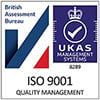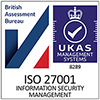Software for recruitment agencies has had to evolve fast over the past few years in response to unprecedented economic challenges affecting the global employment market. Here we take a look at some key industry trends which are driving changes in CV processing and recruitment database software.
Software for Recruitment Agencies – Industry Trends
Anyone working in the recruitment industry, whether for a specialist recruitment agency or in-house recruitment or HR department, hardly needs telling that employment – and therefore recruitment – has taken a big hit in the last 5 years.
Many recruiters have gone out of business due to the current state of the jobs market, as demand for recruitment by employers has fallen significantly. As a result, many employers who are still recruiting are demanding lower recruitment rates, or bringing all or some of their recruitment in-house to help cut costs.
For those recruitment agencies still in business, there is an urgent need to spend less per placement – which means cutting costs and getting more done with the same resources. But at the same time, the increased competitiveness means that it has never been more important to provide top quality candidates and to be highly responsive to employer demands. Put simply, in a high unemployment market clients expect more high quality candidates, more quickly and for less outlay.
While unemployment has, happily, stabilised over the last couple of years, unemployment remains high – but this does not necessarily mean than it is any easier to find the right candidates for a given vacancy. Job applications are high – meaning a high volume of CV's to be processed – but with many job seekers applying outside of their usual skill area in the hope of finding work, a huge pile of resumes does not automatically equate to a high quality pool of candidates. This is especially true for specialist areas such as IT, communications, oil & gas, where the right skillset can be just as hard to find as it ever was, so recruiters have begun to find alternative ways to source candidates.
Meanwhile, advances in internet technology and the rise of social networking have created a whole new opportunity for recruiters in the shape of online job boards and business networking sites, offering new ways to reach potential candidates. However, making best use of this social recruiting opportunity can be a challenge in itself, requiring significant effort to search and find online CV's and profiles.
Many recruiters have responded to the new climate by going niche (specialising in a narrow sector where demand is strong) and/or going global (providing the same services to a wider client base). While both approaches make good sense, they can require a different way of working and strong technology to deal with the inevitable issues that this brings, such as quickly sourcing highly specialist skills, or dealing with CV's in different languages.
In-house recruiters have also had to adapt as they try to deal with the same pressures as the recruitment agencies: a high volume of applications needing to be processed more quickly and cost-effectively, combined with the need to ensure high quality placements.
Fortunately, software for recruitment agencies and in-house recruiters has been developed to address many of the practical problems created by these trends, and DaXtra in particular have been at the forefront of these developments.
Today's Requirements for Recruitment Database Software
Given these multiple trends, what are the key requirements for software for recruitment agencies, in terms of CV processing and recruitment database software?
Quick and automatic CV processing – To minimise manpower and speed up response for end clients, software for recruitment agencies needs to be able to quickly process large numbers of CV's, which may be in any format, into clean, searchable data.
Online CV acquisition – To source skilled candidates, recruitment software needs to be able to search job boards, business networking sites and other online sources for potential candidates, downloading CV's and non-CV data (e.g. personal profile data) into the database ready for searching. Ideally, the software should be able to run searches automatically and notify recruiters when new matches arrive, saving valuable recruiter time.
Reliable multilingual parsing – To enable recruiters to draw on a wider pool of talent, software needs to be able to deal with resumes in a wide range of languages.
Compatible with current systems and processes – Having to switch to a new type of database is a major cost and disruption for any recruitment business, so recruitment database software should ideally be designed to easily communicate with existing systems, processing new CV's into the required format.
Intuitive searching – Having to train staff to learn a new query language to run searches is also an unwanted cost to a recruitment operation. Recruiting software should ideally allow consultants to use natural, intuitive language to look for resumes within the system.
Cater for skills in specific niches – Niche recruiting requires software which understands the particular jargon and terminology used within the industry, without needing a lengthy period of "training" to get up to speed, and without the client having to specify and encode their own set of terminology.
Supports existing workflow and processes – Most recruitment operations will have well established workflows whereby work is passed to different people at different stages of the recruitment process. Recruiting software should enable this process rather than requiring a change in process which is likely to encounter resistance from personnel using it.
DaXtra Software for Recruitment Agencies
With the highest benchmarking accuracy (up to 95%) for CV parsing across more than 25 business languages, automatic online CV acquisition capability, intuitive searching and full support for client workflows, the DaXtra product range provides unparalleled functionality and efficiency savings for the modern recruitment industry. To find out more or to arrange a demonstration please contact us.



